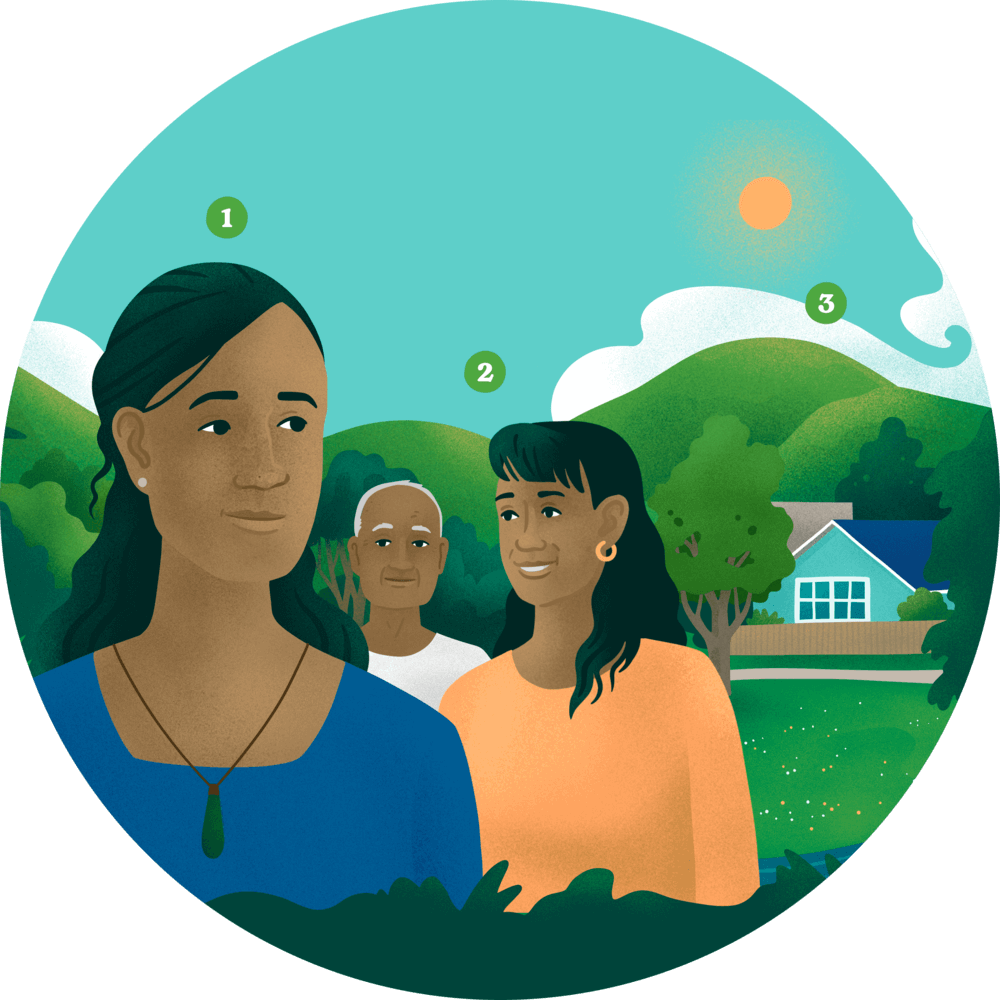
Gratitude Practice
Practising gratitude on a daily basis can help lift your mood and make you feel happier.

What is gratitude?
How do you feel when warm sunlight touches your face, or when you have your first sip of morning coffee or tea? These little moments often make us feel good, but we don’t pay much attention to them. Practising gratitude means taking a moment to appreciate the small things in life that bring you joy.
How does it help?
Practising gratitude regularly, even just for a few minutes each day, can help you experience more positive emotions and increase your overall wellbeing. You’re focusing your mind on things that make you feel good, whether that’s at least one thing you like about yourself, the people you love or an appreciation for nature and the wider world.

FAQs
What can I feel gratitude for when I don’t feel good about much in my life?
The feelings you feel are all valid, and practising gratitude isn’t about blocking any negative emotions you may be experiencing. Feeling grateful doesn’t happen overnight, so the key is to be patient and remember the benefits may take time to kick in.
Changing your mindset is a process of growth - and growth takes time.

Try Gratitude Practice now
Small Steps Toolbox
These tools have been developed to help with feelings of anxiety, stress, or low mood. Each tool only takes a few minutes. Health and wellbeing is an ongoing journey - so try them out and see what works for you.
Balancing Mood
This tool can give you insight into how what you’re doing affects your mood, and recommends activities that can improve how you’re feeling.
Understanding Loneliness
Loneliness is a common feeling we all get from time to time. The tool asks you when you feel lonely and gives insights on why or what you can do about it.
Mindful Watching
During this mindfulness exercise, you’ll be guided by relaxing audio to calmly notice different visual aspects of images and apply this to your surroundings.
Reframing Thoughts
This tool can help to identify unhelpful patterns in your thoughts and beliefs and reframe them over time to help you feel better and make decisions that support your overall sense of wellbeing.
Improving Sleep
Improving Sleep is a quiz that helps you explore the things you can do or avoid that can lead to a better quality sleep. There are a variety of tips available so you can choose something that suits your lifestyle.
Identifying Signals
During this exercise, you’ll be guided to identify sensations in your body that you often experience when feeling upset. You can use these as signals to react differently, use a tool, or engage in self-care.
Supporting Others
Supporting Others gives you tips on what you can say or do when you’re helping someone who’s going through a hard time.
Muscle Relaxation
Teach your body how to relax better through muscle relaxation. The key is learning to apply this skill in everyday life to the entire body so that you’re not tensing muscles when you don’t need to.
Deep Breathing
This reflective technique involves slowly breathing in and out to help you feel calmer and more relaxed. This tool is guided by an animated image that inflates and deflates.
Active Listening
This skill involves fully focusing on what a person is saying, rather than selectively hearing. In this exercise, you’ll practice listening and develop an awareness of when you’re not paying attention.
Building Self-Worth
This tool helps you on your journey to gain self-worth. Go through the Building Self-Worth card deck for energetic, reflective, or inspirational activities.
